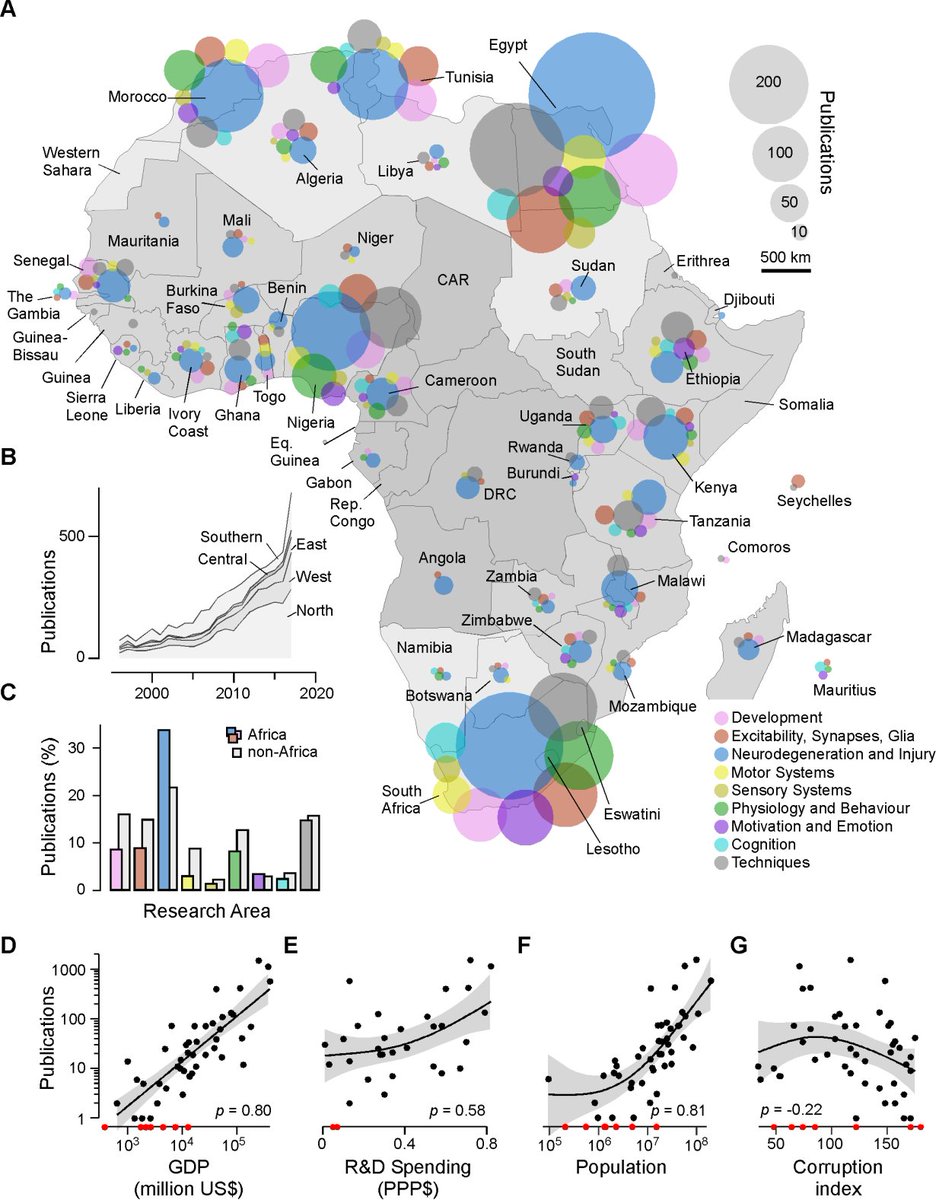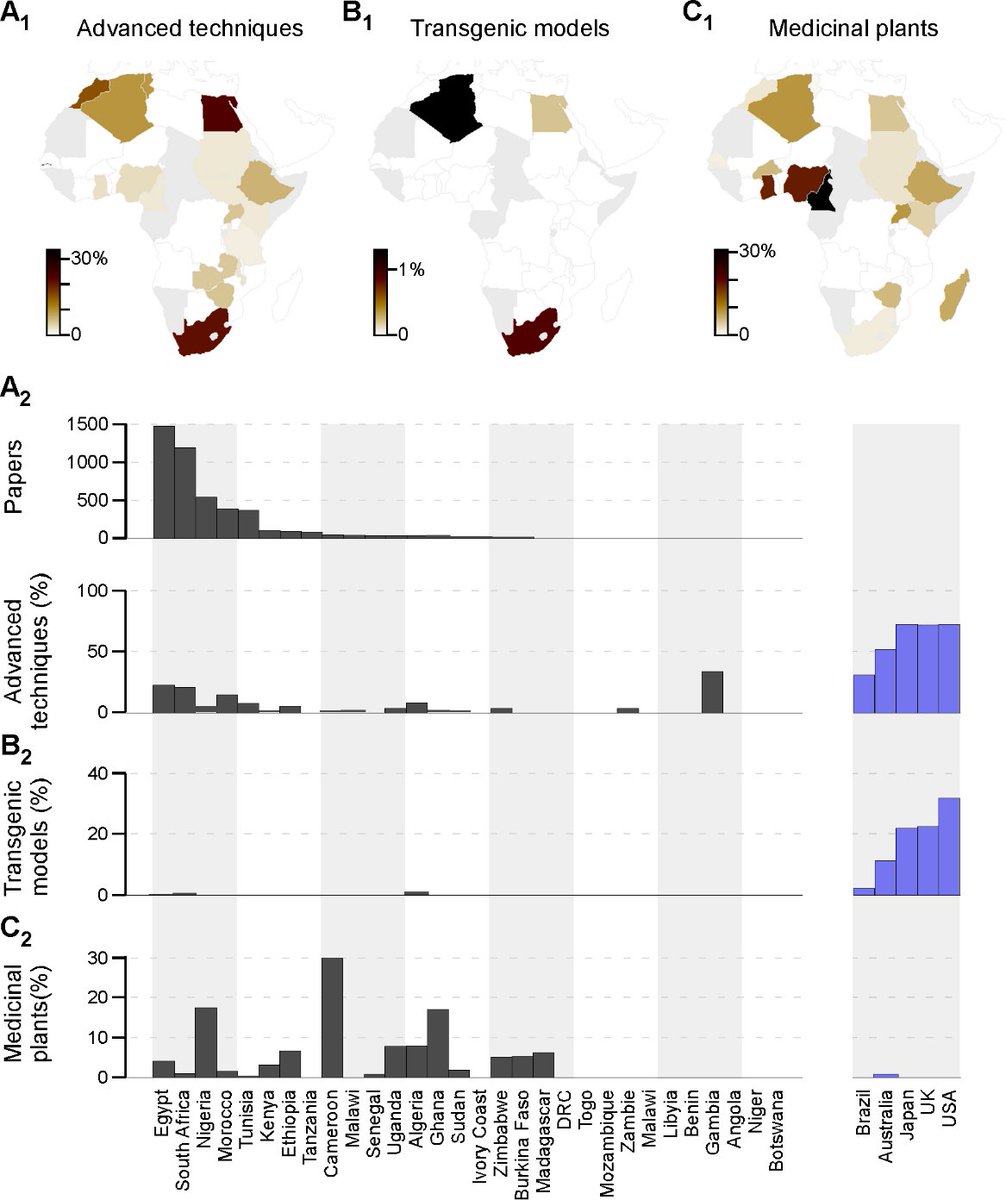Ever wondered what #Neuroscience research looks like in #Africa? For 3 years, we have been working on profiling the neuroscience research landscape in the continent’s 54 countries. Very excited to share our latest work: biorxiv.org/content/10.110…
(1)

#Africa has real potential in #Neuroscience, but needs help to rise from its current position! To do this, we need accurate data that reflects the heterogeneity of research across the continent's 54 countries.
(2)
(3)
(4)
(5)
(6)
i) Africa's #Neuroscience output since 1997 has been dominated by #Egypt, #SouthAfrica, #Nigeria, #Morocco and #Tunisia. Although outputs from other countries are also on the rise.
ii) Neurodegeneration & injury is the dominant research theme in #Africa.
(7)
(8)

(9)
(10)
(12)
ix) Although many did not declare their funding source, of those who did, most #AfricanNeuroscience research was supported by international rather than domestic agencies, except for #SouthAfrica.
(13)
(14)
(15)
(16)
(17)



